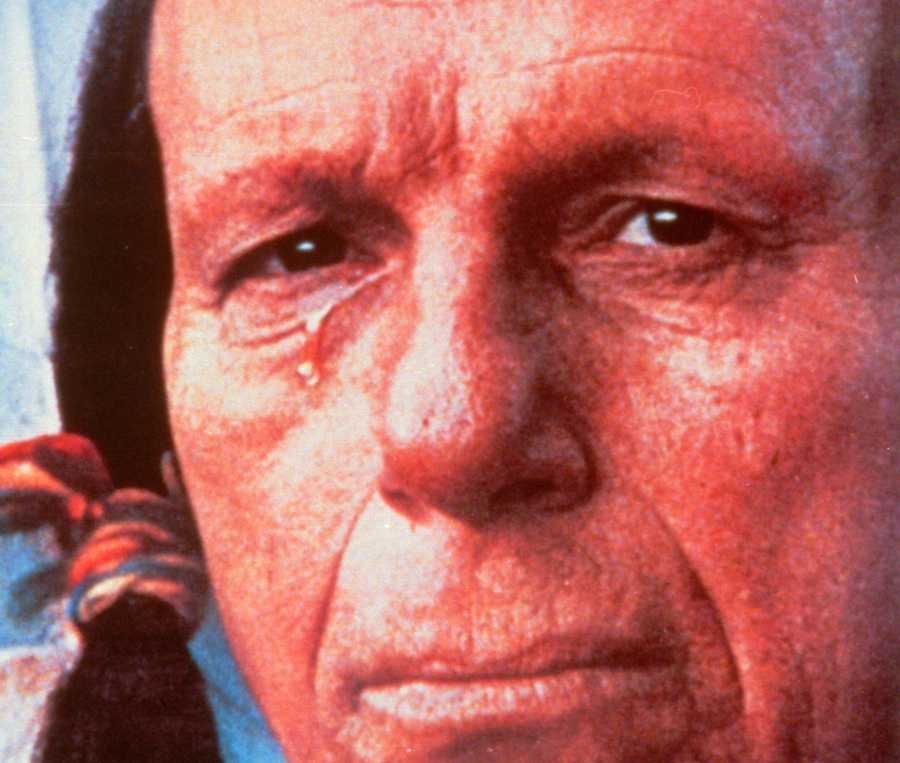Redskins controversy, South Park-style
The new season of South Park premiered this week, making it the 18th installment in the renowned TV series. As always, Matt Stone and Trey Parker, the creators of the show, were sure to satirize a controversial topic, and incorporate a much stronger message underneath the crude humor.
The episode, appropriately named “Go Fund Yourself,” depicts Washington Redskins’ owner Dan Snyder, along with his associates, wanting to get the team’s name back after the four main characters—Stan, Kyle, Cartman, and Kenny—reserve the rights to it. After the trademark for the name was pulled (which recently happened in real life), the four kids decide to use it for a start-up company founded on Kickstarter, eventually generating tens of thousands of dollars.
Stone and Parker were also sure to implant subtle cultural references, like when Snyder, contemplating his own demise after all his players abandon him, cries a single tear as the camera zooms in on him, alluding to the end of the very famous “Crying Indian” commercial from the early 1970’s.
Whether the new episode was met by applauding critics amazed by the topicality and depth in the sometimes smart, always controversial show, or shallow racists, who laughed only at the crude jokes and interpreted the episode as a means to further their Redskins patriotism, this release was not the last of the discussion about the football team’s vexed name.
John Oliver, host of Last Week Tonight, also mentioned the episode in one of his segments, referring to Dan Snyder as “Chief Runs-without-moral-compass” for his unwillingness to reconsider his actions in refusing to change the name. Oliver also showed this powerful video, which acts as another example of how indigenous people in the U.S. don’t want their names to be appropriated by sports franchises.
Despite the satire and rancor, the controversy is actually really simple: Snyder, along with many fans, doesn’t see a problem in using the the name “Redskins.” Millions of other people understand that the term was, and still is, an offensive, derogatory word used to describe Native Americans. It degrades the rights, rituals, and beliefs of an entire people.
Obviously, many Native Americans find this name offensive, as do many non-native Americans, who recognize this disrespectful term within a long line of racial slurs that educated people have stopped using. Others, woefully ignorant of the past and current plight of indigenous people in North America, can only summon a mental picture of an Indian in a headdress or war paint, obviously based on a fictional stereotype. This figure has not been an accurate representation of Native Americans since the turn of the last century, if ever.
The debate has drawn the attention of prominent Native American leaders and activists, who see in this dispute just another example of dominant culture exploiting Native Americans’ heritage. Sherman Alexie, a renowned author and filmmaker, as well as major advocate for the rights of Native Americans, commented during an interview, “It’s horribly racist. It’s a racist mascot, created in a racist time, by a racist owner. The only thing that keeps it going is that sports fans end up treating their teams like church. The support of a mascot has confused Christianity and sports.”
Alexie brings up an interesting point: maybe Americans have distorted the view of the word “Redskins” so much that to give it up would be like converting from one religion to another, a logic that makes sense if sports is a quasi-religious experience and stadiums are places of worship. For others, it’s practically impossible to understand the rationale.
The owner of the team, Dan Snyder, along with the NFL Commissioner, perfectly understands the logic behind keeping the name. He believes that although the name “Redskins” is in fact a stereotype, it still reflects positive values, and it should be endorsed by sports fans, white and native communities alike. “It’s just historical truths, and I’d like them to understand, as I think most do, that the name really means honor, respect,” Snyder told ESPN‘s John Barr. What Snyder is failing to realize here is that regardless of how supportive he thinks the name may be, the decision is not up to him. It lies with the rather large demographic of people whose great grandparents heard “redskin” as an excuse for lies, torture, and killing at the hands of the US government, the military, and sometimes even bounty hunters.
Unfortunately, the problem doesn’t lie solely with people like Dan Snyder. According to the Washington Post, 71 percent of Americans believe that the Redskins shouldn’t change their name. Thankfully, this number is slowly shrinking.

Sam, also known as "Slammin' Sammy" in reference to his radical softball skills, is a writer in the Features section of The Talon. It's his first year....










Luis Wolfrid • Oct 2, 2014 at 11:33 am
South Park <3